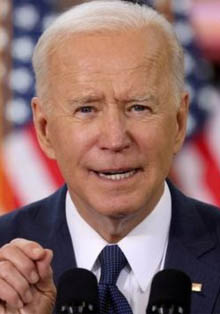Ángel Collado
Pedro Sánchez has guaranteed Spain direct control of the 70 billion that will come from the European Union to revive the economy, but he is beginning to bow to pressure from EU institutions on his main national projects.
After renouncing his plan to control the Judiciary from the government majority, an aberration in European and constitutional terms, the chief executive is now preparing to submit the main reforms (labour legislation and the pension system) to scrutiny in order to be able to administer the same aid.
The heat of the elections in the Madrid region has served the government to conceal the extent of its fiasco in the operation to manage the General Council of the Judiciary. The Popular Party has succeeded in stopping the project, more because of the complaint to the EU than because of its weight in Congress, where the left as a bloc and the pro-independence groups allied to Sánchez were willing to force the Constitution and divide up the government of the judges.
The Minister of Justice, Juan Carlos Campo, presented as a withdrawal of a project of the parliamentary groups the first major resignation of Sánchez’s Executive so far in the legislature. It is a step that also obliges him to re-establish relations with the main opposition party, the PP, in the coming days in order to agree on a renewal of the CGPJ with a broad consensus.
Sánchez has not wanted to continue to make a name for himself in the EU at a time when the Commission is examining the government’s willingness to control the structural deficit of the Spanish economy and a reform of the labour market that will help to combat the unemployment rate, at 16 per cent the highest in the EU along with that of Greece. With four million unemployed, the unemployment rate in Spain is more than double the European average (7.5 per cent), does not include the 743,000 workers in the limbo of redundancy plans, and has the aggravating factor of 40 per cent youth unemployment.
With these figures, Yolanda Díaz, vice-president and minister of employment, as well as leader of the Communist Party, has presented in Brussels a plan of disguised renunciation of the labour counter-reform that socialists and podemites promised when they came to power. It is a generic declaration of intent, with no more specifics than that of simplifying the variety of contracts in force, which could help him pass the first European check and which is keeping the trade unions and employers’ organisations on tenterhooks. The social partners will try to find out this week whether the government is still determined to give more power to the unions in collective bargaining (the prevalence of the sector’s agreement over that of the company), to make hiring more expensive or to make employment more flexible.
The economic recession has increased the differences between the positions of the unions and employers, who are now confident that pressure from Brussels will serve to put the brakes on the Sánchez government’s original plans to force wage and contribution increases.
In the pension system, the reform proposed by the Social Security minister, José Luis Escrivá, who is more technocrat than socialist, already has more internal criticism than support, although he does not go into much detail either. To avoid conflict, it is based more on measures to delay citizens’ entry into the system in the coming years than on reducing the bill for a Social Security system that is already effectively bankrupt.
With the last budget, spending rose by 3.2 per cent, a rate the Spanish economy cannot afford after public debt rose from 95 to 120 per cent of Gross Domestic Product in 2020, a record high in modern Spanish history. The government’s problem with this reform is that, in addition to convincing the EU that it will take the measures to reduce spending seriously, it needs a parliamentary majority that it does not have in the current Congress to push through the cuts.







